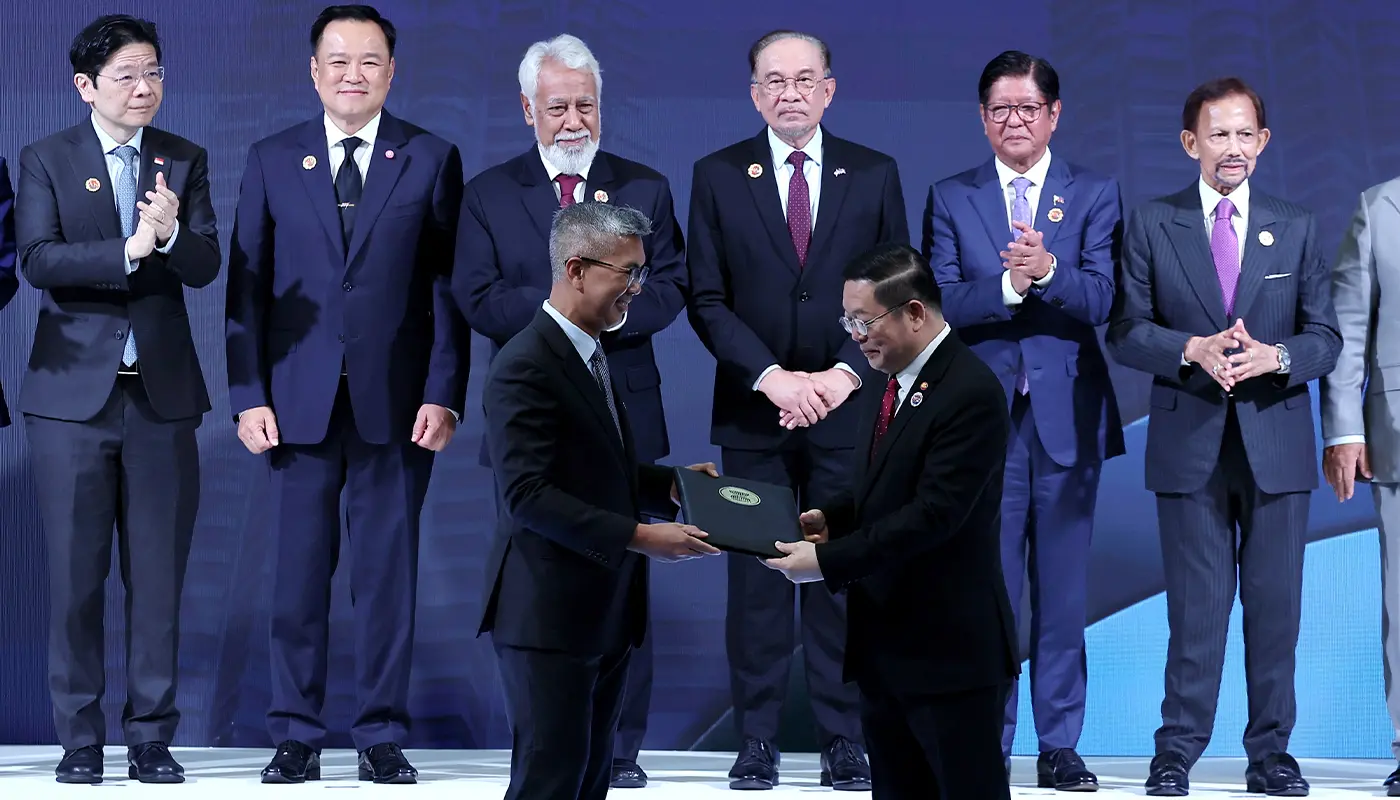At the 47th ASEAN Summit held in Kuala Lumpur this week, member states of the Association of Southeast Asian Nations (ASEAN) underscored their commitment to deeper economic integration by formally conducting a hand-over ceremony for the Second Protocol to Amend the ASEAN Trade in Goods Agreement (ATIGA).
The ceremony was witnessed by ASEAN leaders and the organisation’s Secretary-General, Dr Kao Kim Hourn.
The amended ATIGA is designed to equip the trade agreement with renewed flexibility and responsiveness to shifting global and regional economic conditions.
It aims to facilitate stronger supply-chain linkages among ASEAN’s ten (soon eleven) member states, and to deepen intra-regional trade flows.
Malaysian Prime Minister Anwar Ibrahim, whose country holds the ASEAN chairmanship for 2025, described the Protocol’s hand-over as “a decisive step forward” in the bloc’s economic architecture.
“To strengthen our economic foundation, we are trading more among ourselves, investing more in one another, and advancing integration across sectors,” he said.
The event coincided with other major developments at the summit, including preparations for the signing of the ASEAN‑China Free Trade Area 3.0 on 28 October and the upcoming 5th leaders’ meeting of the Regional Comprehensive Economic Partnership (RCEP) on 27 October.
Anwar noted that the upgraded ATIGA and those forthcoming initiatives collectively signal ASEAN’s readiness for “fair trade, digital transformation and sustainable energy”.
From the Philippines, the office of President Ferdinand R. Marcos Jr. highlighted domestic benefits arising from the amended trade pact.
According to the government-press release, the “handover ceremony” will enhance opportunities for Philippine enterprises under two ASEAN trade instruments.
Analysts say the amended ATIGA comes at a timely moment. Global supply-chain disruptions, geopolitical fragmentation, and regional trade rivalries have all placed greater premium on intra-ASEAN trade stability and resilience. By modernising its goods-trade framework, ASEAN aims to shore up its central role in the Indo-Pacific economy.
Still, challenges lie ahead. Even as LASIAN economies deepen their links, they must address uneven infrastructure readiness, varying domestic regulatory frameworks, and the external pressures of great-power competition.
Malaysian Foreign Minister Mohamad Hasan recently cautioned that “the turbulence of global politics will continue to cast a long shadow” over the region’s economic space.
In the context of Malaysia’s ASEAN presidency and under the theme “Inclusivity and Sustainability”, the hand-over of the Second Protocol to Amend ATIGA represents more than just a procedural milestone.
It is a tangible affirmation of ASEAN’s intention to act as a co-ordinated bloc, deepen internal trade, and engage major partners from a position of shared strength.
With global economic uncertainty mounting, ASEAN is signalling that the region’s connectivity, both economic and political, remains a strategic priority, and that agreements such as the amended ATIGA are central to delivering on that objective.
Sources: ASEAN Secretariat News





